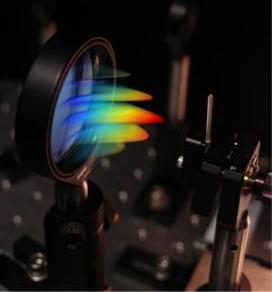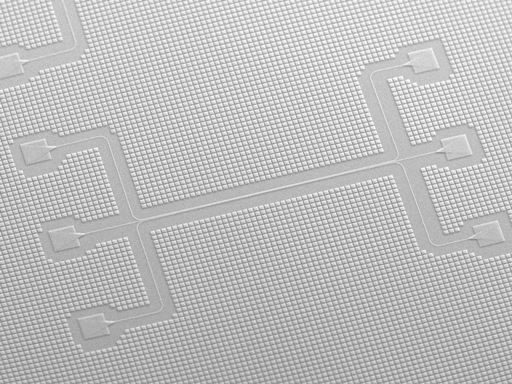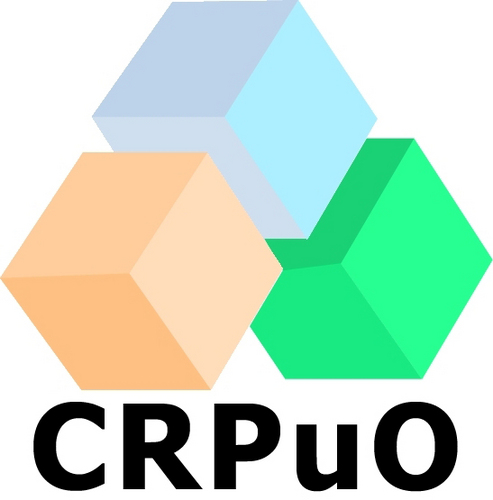Research Topics
As well as the research topics below, we continue
to persue some of the research projects detailed in Past Research. Our research is
primarily experimental but has a strong theoretical component as well.
As society approaches the ultimate limits of computing and
communication we will reach a point where each particle we use,
electron or photon, carries one bit of information. Science is now
becoming adept at manipulating individual quantum particles. The
limits in sensitivity, speed, power, etc. of the various devices
that we would use these particles in are set by the strange laws of
Quantum Physics. The careful control of quantum particles will allow
us to build sensors with dramatically higher sensitivity (Quantum
Metrology), computers than can solve intractable problems (Quantum
Information), and the first provably secure communication systems
(Quantum Cryptography). The eventual goal of this research topic is
to create these potentially revolutionary devices.
Quantum
Information and Metrology in Integrated Photonic Circuits
Miniaturization in the electronics industry has culminated in
microchips made up of billions of gates that act as the brains of
most electronic devices today. Leveraging this technology built for
electrons, we can now create microchips for photons as well. Known
as integrated optical chips, these will drive the invention of new
medical and environmental sensors and future telecommunications
systems. Whereas these applications are mainly based on the
classical optics of the last century, our laboratory is developing
new kinds of photonic chips that function via the quantum physics of
light, ‘quantum optics’. The long-range vision is to be able to
implement the complicated circuits required by quantum algorithms.
In the short-term, we are trying to create small-scale Quantum
Information Processors and Quantum Metrology-based sensors on a
chip.
As the fields of photonics and Quantum Information mature, detectors of quantum light are becoming more sophisticated and complex. We are designing, developing and/or characterizing optical detectors that can, for example, count photons, image quantum light, detect quantum coherence directly. The study of Quantum Information has reinvigorated the effort to
understand the fundamental concepts of Quantum Theory, such as
measurement, the wavefunction, and entanglement. We are working to
provide insight into these concepts by providing them with
operational meanings. That is, definitions in terms of a simple set
of operations in the laboratory. In turn, these operational meanings
can inspire new applications and techniques in Quantum Information
(i.e. how to measure the wavefunction). We are exploring the use of
generalized measurements (e.g. weak measurement) as practical tools
in metrology, optics, and Quantum Information.
The study of Quantum Information has reinvigorated the effort to
understand the fundamental concepts of Quantum Theory, such as
measurement, the wavefunction, and entanglement. We are working to
provide insight into these concepts by providing them with
operational meanings. That is, definitions in terms of a simple set
of operations in the laboratory. In turn, these operational meanings
can inspire new applications and techniques in Quantum Information
(i.e. how to measure the wavefunction). We are exploring the use of
generalized measurements (e.g. weak measurement) as practical tools
in metrology, optics, and Quantum Information.
Quantum
Information and Metrology in Integrated Photonic Circuits
Miniaturization in the electronics industry has culminated in
microchips made up of billions of gates that act as the brains of
most electronic devices today. Leveraging this technology built for
electrons, we can now create microchips for photons as well. Known
as integrated optical chips, these will drive the invention of new
medical and environmental sensors and future telecommunications
systems. Whereas these applications are mainly based on the
classical optics of the last century, our laboratory is developing
new kinds of photonic chips that function via the quantum physics of
light, ‘quantum optics’. The long-range vision is to be able to
implement the complicated circuits required by quantum algorithms.
In the short-term, we are trying to create small-scale Quantum
Information Processors and Quantum Metrology-based sensors on a
chip.Sources and Detectors of Quantum Light
To achieve the potential of Quantum Information and Metrology it will be necessary to develop new and better kinds of sources of single and entangled photons. We are designing and building waveguide sources of photons (through spontaneous four-wave mixing) that are compatible with integrated photonics. We are also building free-space sources in new geometries to produce novel kinds of entangled photon pairs, such as radially polarized photons, or photons with orbital angular momentum.As the fields of photonics and Quantum Information mature, detectors of quantum light are becoming more sophisticated and complex. We are designing, developing and/or characterizing optical detectors that can, for example, count photons, image quantum light, detect quantum coherence directly.
Foundations of Quantum Theory
 The study of Quantum Information has reinvigorated the effort to
understand the fundamental concepts of Quantum Theory, such as
measurement, the wavefunction, and entanglement. We are working to
provide insight into these concepts by providing them with
operational meanings. That is, definitions in terms of a simple set
of operations in the laboratory. In turn, these operational meanings
can inspire new applications and techniques in Quantum Information
(i.e. how to measure the wavefunction). We are exploring the use of
generalized measurements (e.g. weak measurement) as practical tools
in metrology, optics, and Quantum Information.
The study of Quantum Information has reinvigorated the effort to
understand the fundamental concepts of Quantum Theory, such as
measurement, the wavefunction, and entanglement. We are working to
provide insight into these concepts by providing them with
operational meanings. That is, definitions in terms of a simple set
of operations in the laboratory. In turn, these operational meanings
can inspire new applications and techniques in Quantum Information
(i.e. how to measure the wavefunction). We are exploring the use of
generalized measurements (e.g. weak measurement) as practical tools
in metrology, optics, and Quantum Information.
